Investigative Brief | The Independentist
By Ali Dan Ismael, Senior Editor
Top-Secret Diplomatic Plot Unfolds in Yaoundé
Yaoundé, 7 July 2025 — Intelligence gathered from diplomatic sources has revealed that a high-level closed-door meeting has recently taken place at the French Embassy in Yaoundé, reportedly chaired by France’s acting ambassador to Cameroon. According to sources familiar with the discussions, the participants reviewed a proposal to:
Postpone Cameroon’s scheduled 2025 presidential elections by two years;
Install Prime Minister Joseph Dion Ngute as interim head of government during this extended transition.
This development, if confirmed and implemented, could profoundly affect the political landscape in both Cameroon and the disputed Southern Cameroons (Ambazonia), raising concerns about democratic continuity, constitutional legitimacy, and foreign influence.
A Transition or a Tactical Pause?
Supporters of the plan are said to argue that such a transition would allow time to stabilize internal tensions, particularly in conflict-affected regions. However, critics warn that it risks becoming a sophisticated mechanism for stalling electoral accountability and entrenching foreign-backed leadership under the guise of reform.
This follows a broader pattern noted by several analysts and human rights observers who have documented France’s historic use of local intermediaries to navigate unrest in its former colonies—often at the expense of democratic legitimacy or indigenous aspirations for autonomy.
Shifting Alliances and Unsettled Opposition
In the lead-up to the 2025 vote, political shifts are accelerating:
Maurice Kamto, a key opposition figure, is reportedly forming regional electoral coalitions, with some support from Anglophone detainees including Sisiku Ayuk Tabe and members of the AGovC faction.
In the Far North, politicians such as Bouba Maigari and Issa Tchiroma Bakary have allegedly held consultative meetings with French diplomatic figures, possibly in anticipation of a broader post-Biya realignment.
Strikingly, the ruling CPDM party has yet to officially declare a presidential candidate, leading some observers to suspect that the real decision-making may be unfolding outside the public sphere, in coordination with France’s long-time diplomatic interests in Cameroon.
Dion Ngute’s Return Sparks Debate in Southern Cameroons
In Ambazonia, the appointment of Prime Minister Dion Ngute as interim head of government is viewed with mixed emotions. During a recent visit to the region, Mr. Ngute made headlines with remarks suggesting that “ghost towns have crippled the local economy.”
His comments were widely criticized by local residents and diaspora voices, who argued that economic collapse in Southern Cameroons long predates the civil disobedience movement, and was largely triggered by decades of systemic neglect, economic extraction, and the erosion of vital industries.
Observers point to the collapse of entities such as:
Cameroon Bank (allegedly looted by foreign consultants),
Powercam, CDC, PAMOL, UNVDA, and Tole Tea,
Decommissioned seaports in Tiko and Victoria,
And abandoned airstrips across Bali, Tiko, Nken, and Bisongabang.
For many, these are not consequences of protest—but symptoms of a broader structural decline fueled by poor governance and chronic underinvestment.
Echoes from Bamenda: The Peace That Was Promised?
Just months earlier, the French ambassador—accompanied by several EU diplomats—visited Alliance Française in Bamenda, where he publicly stated that “peace is coming to Bamenda.” That statement, widely circulated in local media, raised hopes that a new chapter of dialogue and demilitarization might emerge.
Today, that hope appears misplaced.
If this backroom transition plan is the outcome of that message, then Ambazonians have reason to be deeply alarmed. A two-year delay, fronted by a colonial-era appointee, does not represent peace—it signals containment, distraction, and calculated deception.
Ambazonia must beware.
If this maneuver is accepted without resistance, it will not be peace—it will be precedent. A precedent that formalizes external control, invalidates self-determination, and deepens dependency on foreign-engineered solutions.
For many Ambazonians, the lesson is now unmistakable: “If we break this time, it will be high treason—and the cost may be eternal.”
Leadership and Legitimacy in the Ambazonian Space
In contrast to the France-backed interim proposal, Ambazonian institutions continue to rally behind Dr. Samuel Ikome Sako, who was elected as President of the Federal Republic of Ambazonia in 2018. Dr. Sako has maintained broad support across the diaspora and local defense movements, despite internal challenges and rival claims to leadership.
Critics of the transition plan argue that the imposition of any interim administration without democratic consent—especially one shaped in foreign diplomatic circles—risks deepening mistrust and derailing any potential dialogue.
“Cameroon is entering a delicate phase,” one political analyst in Douala noted. “Postponing elections and reshuffling leadership behind closed doors may buy time, but it could also provoke resistance and discredit reform before it even begins.”
Conclusion: Transparency, Not Tactics, Is Needed
At a time of national uncertainty, the Cameroonian people—and the international community—deserve transparency, inclusion, and constitutional clarity. Any political transition must respect the rule of law, reflect the will of the people, and avoid reinforcing perceptions of external manipulation.
Postponing elections or reshaping governance through diplomatic backchannels may offer short-term convenience, but history suggests such tactics often yield long-term instability.
Ambazonia’s future cannot be written behind embassy doors.
Ali Dan Ismael













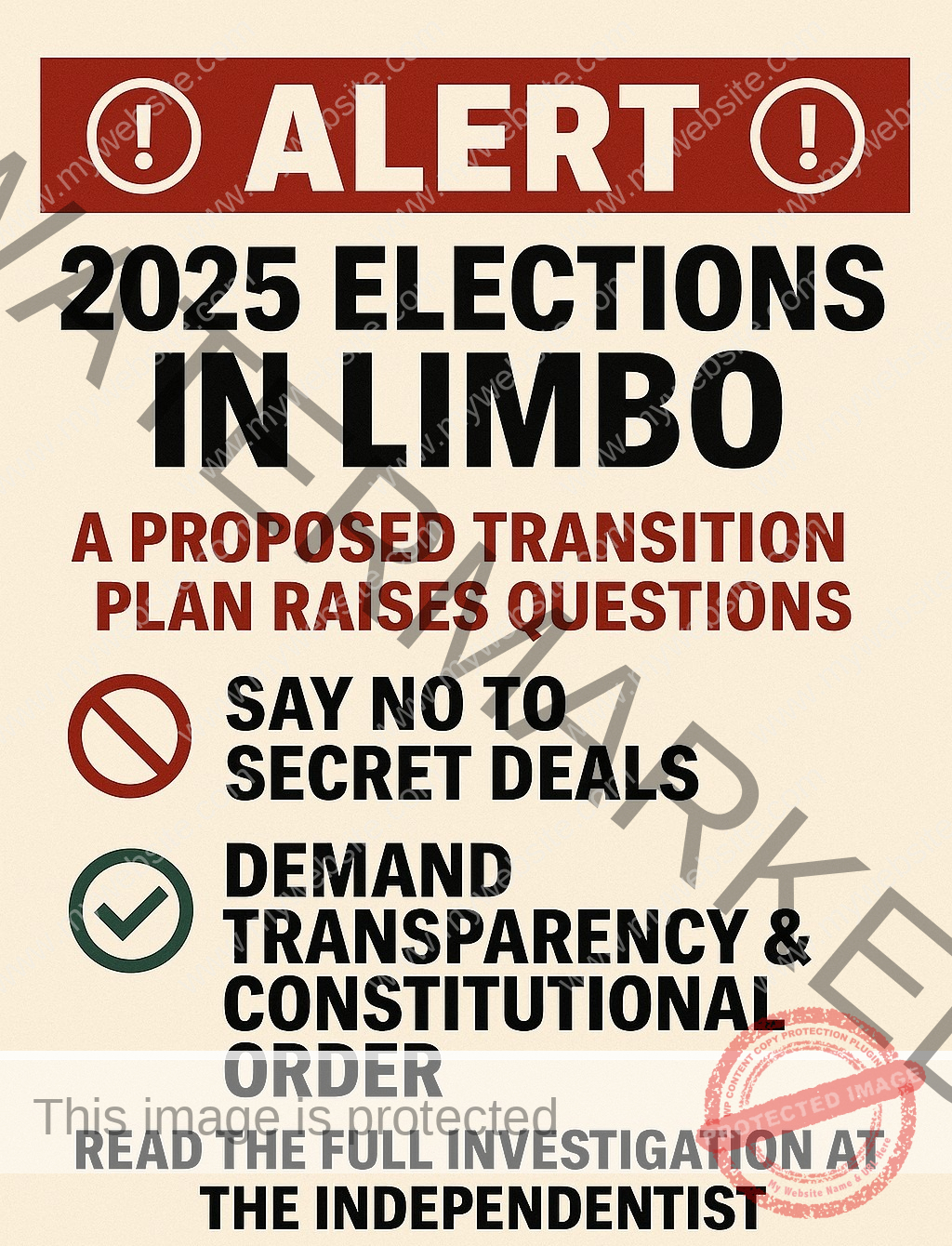
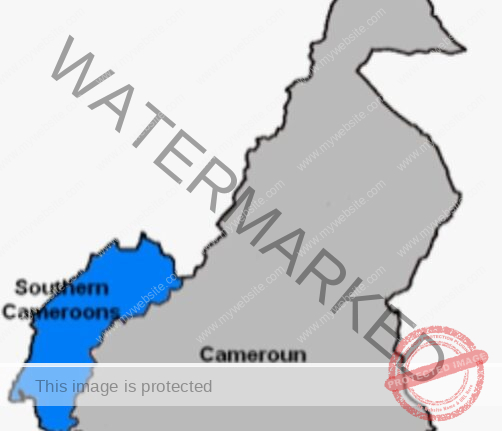


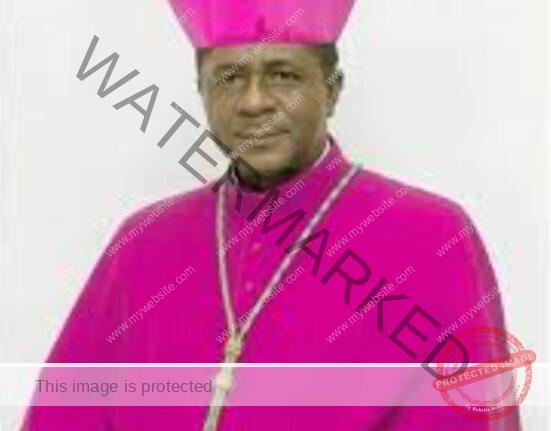
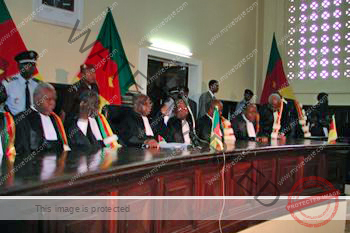
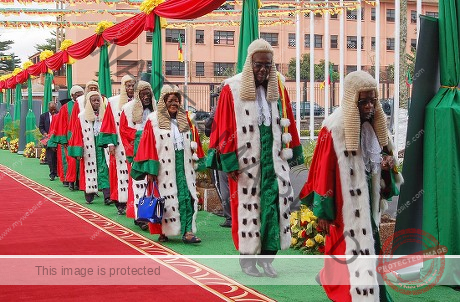

Leave feedback about this